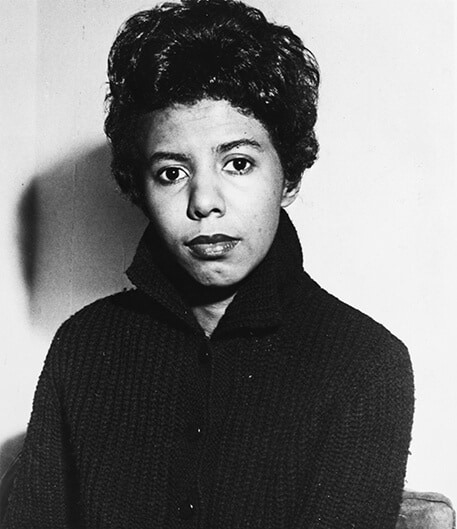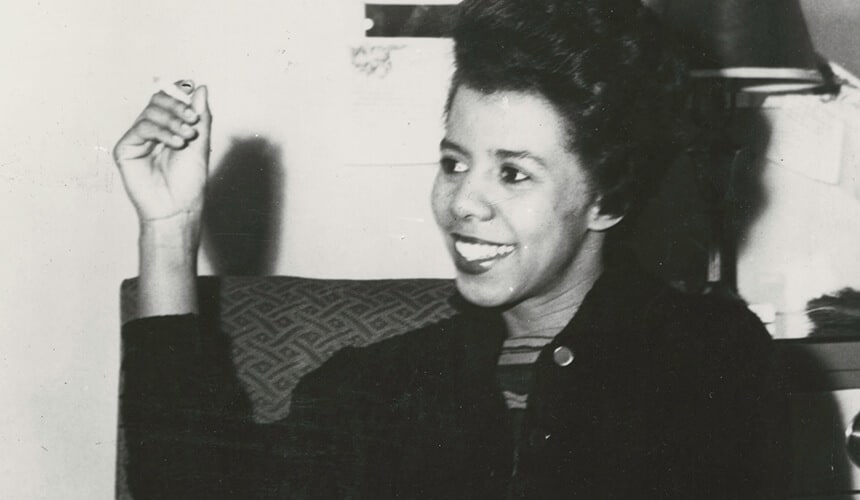Lorraine Hansberry
Barrier-Breaking Playwright
The play that brought fame to Lorraine Hansberry (attended 1948 to 1950) during her much-too-brief life came from a place within.
When she wrote A Raisin in the Sun, she was evoking her own family’s harsh experiences as blacks moving into an all-white Chicago neighborhood. Hansberry was raised in a culture of activism: her father pushed back against restrictive covenants that spawned segregated housing areas until a Supreme Court ruling led to an end of such practices.
She became the first African-American female playwright to make it to Broadway when her play opened in 1959.

Image courtesy of New York Public Library.
Hansberry majored in art when she first enrolled at the University of Wisconsin, but her desire to speak out never wavered. A classmate remembered her as “the only girl I knew who could whip together a fresh picket sign with her own hands, at a moment’s notice, for any cause or occasion.” She thrived in her humanities classes, but struggled with the sciences, and she left campus for New York City after two years. She worked for a progressive black newspaper and contributed letters to a lesbian magazine, although, fearing a backlash, she signed them using only her initials.
From The Park
There is always something left to love. And if you ain’t learned that, you ain’t learned nothing.
Source: A Raisin in the Sun, Act III, “Mama”
Not content to be a lone voice in the fight for equality, Hansberry once said, “The acceptance of our present condition is the only form of extremism which discredits us before our children.”
Hansberry’s play is named for a line in a Langston Hughes poem: “What happens to a dream deferred? Does it dry up like a raisin in the sun?” It sparked attention on opening night — and long after. “Never before, in the entire history of the American theater, had so much of the truth of black people’s lives been seen on the stage,” James Baldwin wrote. Raisin reached broader audiences in 1961 when a film version starring Sidney Poitier hit theaters, it was produced twice for television, and it returned for two runs on Broadway.
Hansberry died of cancer at age 34. The singer Paul Robeson spoke at her funeral, his deep voice captivating the 600-plus people who packed the church. “As an artist, Lorraine reflected the life and struggles of our day in her work, and she leaves a precious heritage,” he said. “Her soul has grown deep like rivers.”
 82° F
82° F